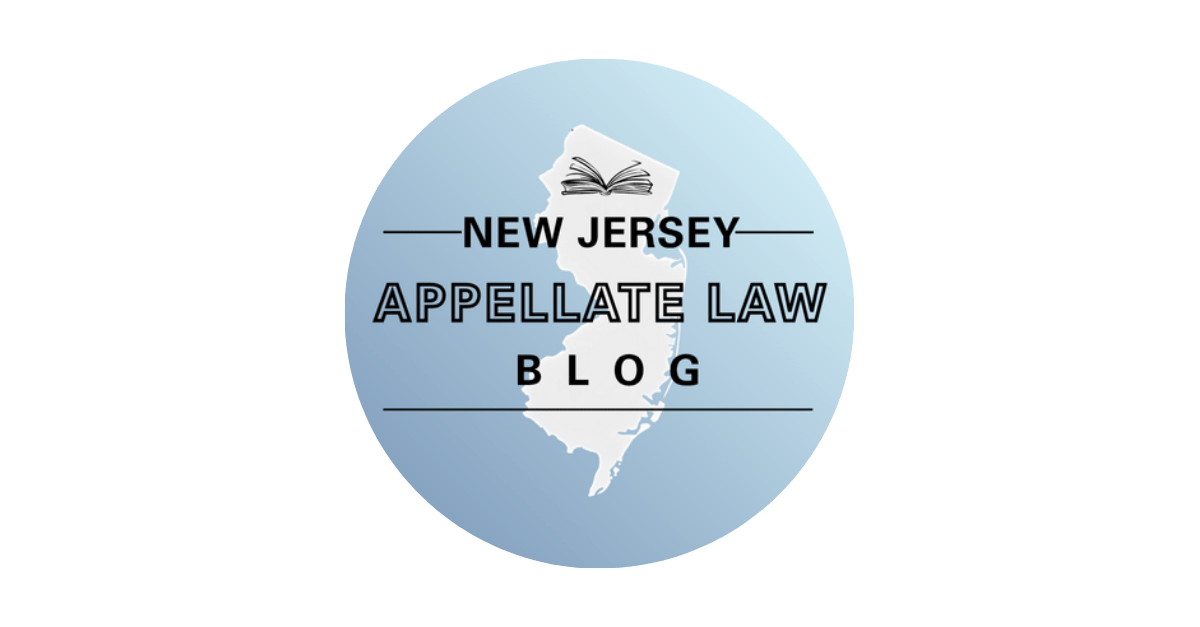On this date in 1984, the Supreme Court decided Arohnson v. Mandara, 98 N.J. 92 (1984). A unanimous opinion written by Justice Schreiber, the opinion was one of a series that cut back on privity of contract as a defense....
Amato v. Township of Ocean School District, ___ N.J. ___ (2025). Yesterday's post included discussion of a per curiam affirmance by the Supreme Court. Today, the Court published another per curiam affirmance in this case. The Court affirmed "substantially for the reasons stated in Judge Puglisi's thorough and thoughtful opinion" for the Appellate Division. That decision was published at 480 N.J. Super. 239 (App. Div. 2024)....
Supreme Court opinions often extend toward the longer side. This week, however, the Court issued two opinions, both involving administrative agency actions, that were shorter than average. In neither case did more need to be said....
The end of last week saw the issuance of one Supreme Court ruling and two published Appellate Division decisions. Two of those were in criminal appeals. The third involved the exclusion of an expert witness in a medical malpractice case....
The Supreme Court has issued one opinion, involving a guaranty of indebtedness, and the Appellate Division one published ruling, under the Victim's Assistance and Survivor Protection Act, N.J.S.A. 2C:14-13 to -21 ("VASPA"). Here's what they were about....
The week of Thanksgiving and the week preceding it saw one Supreme Court opinion and four published rulings from the Appellate Division. Catching up, here are summaries....
The Supreme Court announced that it has granted certification in Jersey City Municipal Utilities Auth. v. Town of Dover. The question presented, as phrased by the Supreme Court Clerk's office, is "Do the 1971 settlement agreement and the 1984 amendment to that settlement agreement constitute an unlawful perpetual municipal contract without a finite endpoint, are they void as against public policy and the Clean Water Act, and are they terminated if the capacity of the Rockaway Valley Regional Sewerage Authority treatment plant expands beyond twelve million gallons per day?"...
The Supreme Court announced that it has granted leave to appeal in Lowe v. Audet. The question presented, as phrased by the Supreme Court Clerk's office, is "Are insurance brokers exempt from liability under the ‘learned professionals' exception to the Consumer Fraud Act?" The Law Division granted a defense motion to dismiss. A two-judge Appellate Division panel affirmed in an unpublished per curiam opinion....
The Supreme Court announced that it has granted certification in Campoverde v. NY-NJ Link Developer, LLC. The question presented, as phrased by the Supreme Court Clerk's office, is "What is the applicable standard under New Jersey law for determining whether a general contractor owes a duty to a subcontractor's employees for the purpose of determining liability for the injuries sustained by a subcontractor's employee?"...
The Supreme Court issued a Notice, available here, that proposes to revolutionize the process for briefing in the Supreme Court. If adopted, the new procedures would require substantial revisions to Rule 2:12, which currently governs Supreme Court briefing....

